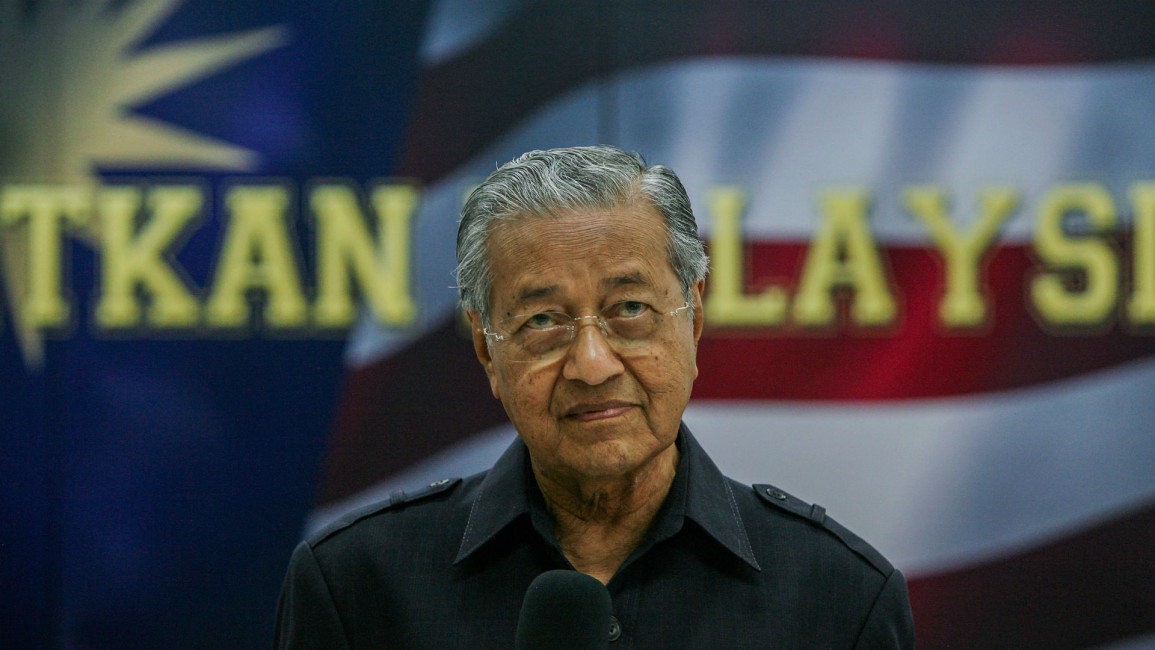Opposition hopeful for 'Malay tsunami' ahead of elections
Former leader Mahathir Mohamad has decided to run as the opposition's prime ministerial candidate. The 92-year old is a champion of the country's Muslim Malays, and his decision has triggered the opposition's optimism.
After six decades of Prime Minister Najib Razak's coalition, the opposition is hopeful for a 'Malay tsunami' with Mohamad's connections to the rural Muslim voters.
Twitter Post
|
The decision threatens to upend the election race, which previously had looked like an easy win for the government, as anger continues to grow over soaring living costs and corruption.
Mahathir has sought to capitalise on his enduring popularity among Malays to win them over to his four-party opposition alliance.
Many still remember him fondly as a champion of the Muslim majority and father of modern Malaysia and the architect of policies that transformed a sleepy Southeast Asian backwater into a relatively affluent country.
Some do feel uneasy about his comeback. He was accused of authoritarian tendencies during his time in power, and was criticised for jailing opponents and undermining the country's institutions.
He has nevertheless successfully tapped into rising anger among Malays in rural areas
Electoral boundaries have recently been redrawn, in a move described by opposition parties as favouring the ruling coalition.
Malaysia's Human Rights Commission said on Tuesday that the move is an "epic breach" of democracy.
In a strongly-worded statement issued on the eve of the country's general elections, the commission's Chairman Razali Ismail, said that a level playing field has been undermined by money and gifts being distributed by Razak's ruling coalition.
Several opposition candidates were also disqualified on nomination day. Razali said the commission has been informed of various instances where people have had their right to vote curtailed and complaints of postal ballots not being received up to 48 hours before the election and other discrepancies.
Malaysia was ranked 125 out of 197 countries worldwide in the 2018 World Electoral Freedom Index, which the right's commission says reflects the flawed democratic process in the country.
An anti-fake news law was also introduced in the run up to the elections, where those found guilty of spreading fake news can be fined a maximum of 500,000 ringgit ($128,000) and face up to ten years in jail.
Critics have slammed the law saying it was introduced to curb dissent and opposition to the government.
Twitter Post
|
The anti-fake news bill will add to a range of repressive laws, including a sedition law, a press and publications act, an official secrets act and a security act - all legislation that has in the past been used against vocal critics, curtailed freedom of expression and undermined media freedom.


![President Pezeshkian has denounced Israel's attacks on Lebanon [Getty]](/sites/default/files/styles/image_684x385/public/2173482924.jpeg?h=a5f2f23a&itok=q3evVtko)



 Follow the Middle East's top stories in English at The New Arab on Google News
Follow the Middle East's top stories in English at The New Arab on Google News


